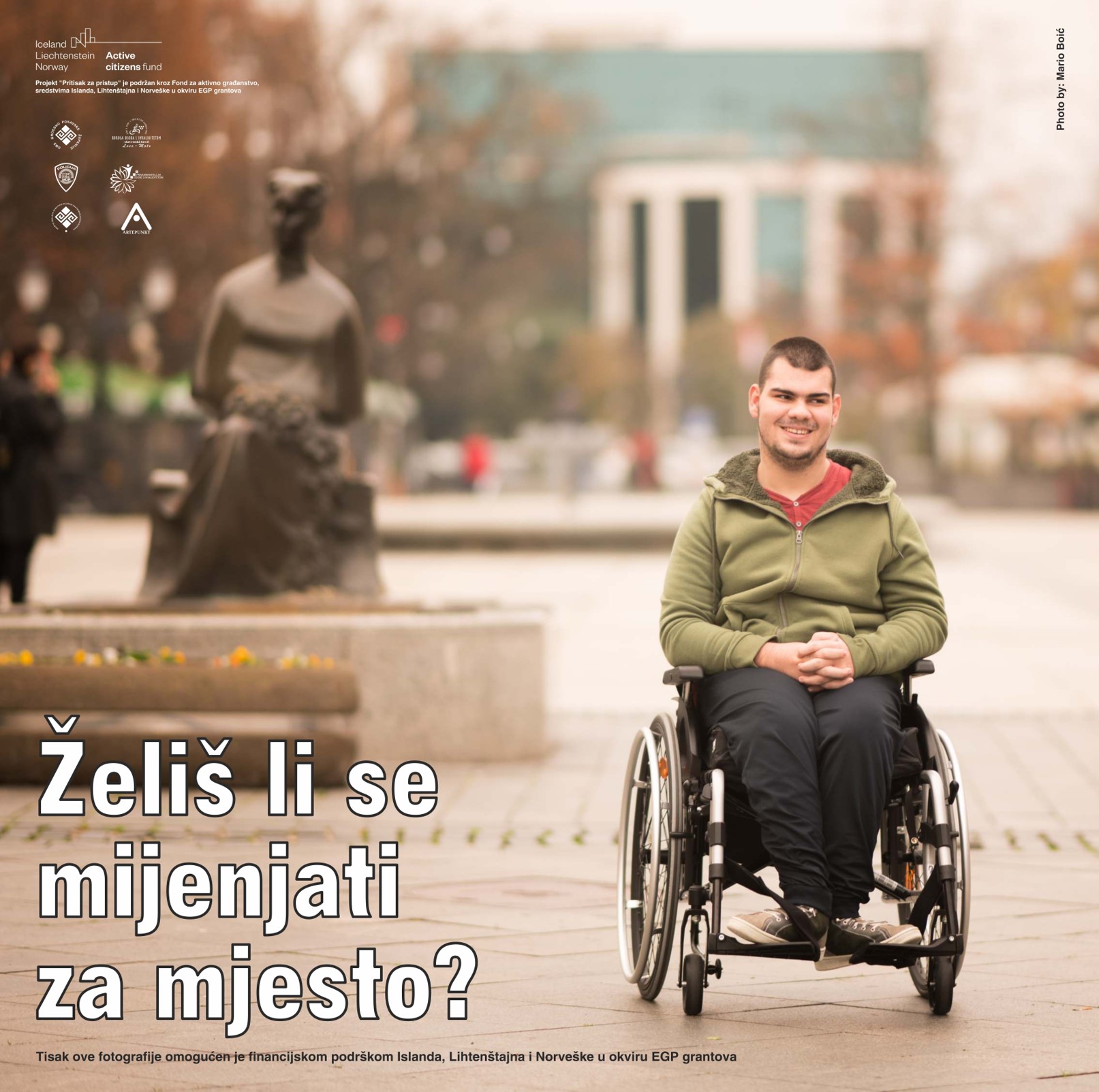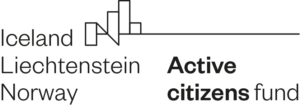ACCESS PRESSURE: “We are as accessible as we see people with disabilities in everyday life”
Posted 27.11.2023.

At the final conference of the project “Pressure for Access,” implemented by the Multiple Sclerosis Society of Brod-Posavina County with partners, we spoke with the project manager Mia Mihić and the Deputy Ombudsman for Persons with Disabilities Darijo Jurišić. Both emphasize that the activities within the project were important for strengthening the position of persons with disabilities in society, but that we still need to work on various levels of advocacy and promoting the position of persons with disabilities.
The project “Pressure for Access” aimed to improve the respect for human rights and the protection of the rights of persons with disabilities through advocating for their fundamental rights to equal treatment. During the project, advocacy and media campaigns were also conducted. Project partners include the Association of Persons with Disabilities “Loco-Moto” from Slavonski Brod, Brod-Posavina Police Administration, Ombudsman for Persons with Disabilities, Multiple Sclerosis Society of Sisak-Moslavina County, and the Artepunkt Skandinavia Association.
“Before we started planning the project and its activities, we spoke with members of partner organizations to approach the challenges faced by persons with disabilities, their families, and their close circles in the best possible way. It was very important for us to listen to their needs and create campaigns that reflect the real situation on the ground.” said project manager Mia Mihić.
During the project, the campaign “Do you want to change for a place?” was carried out, which included personalized plaques with members of partner organizations and recommendations that were forwarded to the wider public. “If you stop for a moment in a parking space designated for persons with disabilities, you make it harder for their daily mobility because you never know when they will need that space while you are doing something ‘quickly’ ” Mihić added.
An advocacy campaign on health rehabilitation, in partnership with the Ombudsman for Persons with Disabilities, addressed the issue of timely rehabilitation for people with multiple sclerosis. “With the support of Deputy Ombudsman for Persons with Disabilities Darijo Jurišić, guidelines for accessing rehabilitation rights were created and sent to the Croatian Health Insurance Fund and the Ministry of Health, which subsequently directed the HZZO to create a protocol for accessing rehabilitation rights.“
“Through the architectural accessibility campaign, we aimed to explain simple ways of applying and adapting spaces for persons with disabilities so that they are less excluded from regular activities in life, such as going to the cinema or a museum. Even the smallest step can be a problem for them.” added Mihić, emphasizing that workshops were held with property owners and local and regional tourism offices. However, she concluded that the number of participants should be higher. It is worth noting that the situation at the national level in Croatia is somewhat improving, as some hotels have already started working on accessibility for persons with disabilities.
“Business entities still do not have a clear picture of what it actually means to ensure accessibility for persons with disabilities. Just one step means an inaccessible building for them, and often attention is not paid to the importance of adapting sanitary facilities for persons with disabilities, which means neglecting their dignity. We forget that they are also big consumers, and ensuring accessibility means additional revenue.” Mihić continued. However, positive change has occurred in two buildings in Slavonski Brod, and a manual for proper accessibility for persons with disabilities has been created.
When asked about the challenges they faced during the project, Mihić answered: “A promotional video and brochure were created and sent to all tourism office branches in Croatia, but unfortunately, only the Brod-Posavina County Tourism Board published it on their pages. This shows that more work needs to be done to raise awareness among business entities about the challenges persons with disabilities face in everyday life. In 2025, the Building Code will come into effect, which will require adaptations for persons with disabilities, but we still need to influence change in various ways. Soon we will have a great election year, and maybe that’s a good opportunity for that.“
A partner in the project was the Office of the Ombudsman for Persons with Disabilities, and Deputy Ombudsman Darijo Jurišić participated in the implementation of various advocacy and advisory workshops. At the conclusion of the project, he emphasized: “This project reflects the life of persons with disabilities and their families. We take for granted many things that persons with disabilities actually see as challenges, which affect their quality of life. Through small changes, we can achieve big ones – that is the message of the project.“
The Ombudsman’s Office is an independent state body that uses the Constitution of the Republic of Croatia, the legislative framework, and various national and international documents and conventions to influence society to become one of equal opportunities, both in education, the labor market, and everyday life, which includes tourism, sports, and cultural events. “Our role is to point out the legal framework, which is well-established in Croatia, but the practice is different – at this moment, it is not aligned with the international obligations we have undertaken. We still have a lot to do regarding how to ensure various rights for persons with disabilities, to which the state has committed.”
Jurišić pointed out that social housing is a problem for the entire population, and persons with disabilities live the life and problems of society in general with various specificities. “We are becoming an older society, and there are more single-person households, and the right to adequate housing is becoming a big challenge. Persons without proper support have to sell their apartments and go to homes, but the fact is that we all feel best in familiar surroundings. Housing for persons with disabilities is something we must think about, not only for them but for society as a whole. Accessibility is not only important for persons with disabilities but also for older adults, parents with children, etc.”
When asked who we should learn from and whose best practices we should follow, Jurišić replied: “Every environment is adapted to its circumstances. Scandinavian countries may be examples of good practice, but we need to strive for our solutions. We like to say that an environment is adapted as much as you see persons with disabilities on the street. We must adapt to the needs that change daily, but we are still not satisfied with the situation on the ground because some public institutions are not adapted for persons with disabilities, and they should be the example for others. Accessibility in itself is not enough if persons with disabilities still need assistance; we must enable them to do things independently to the extent that they can do best.” concluded Jurišić.
The “Pressure for Access” project is funded by the Active Citizenship Fund in Croatia, as part of the Call for Proposals for medium-sized projects. The total value of the project is EUR 88,390.14.
